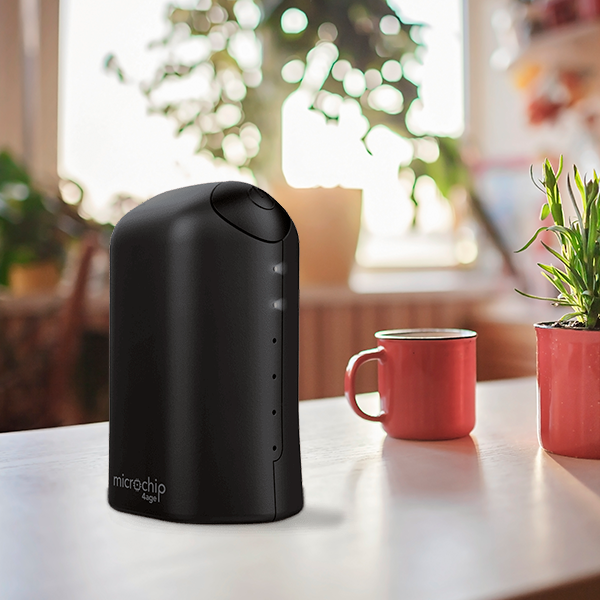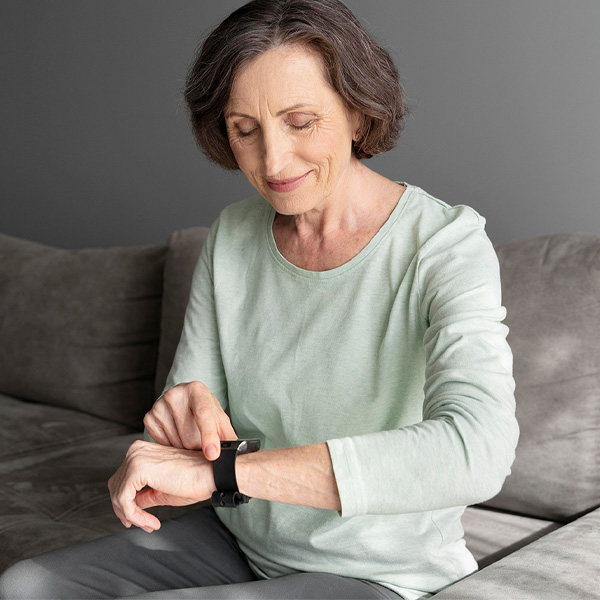
The aging population and the rise in chronic illnesses represent one of the major social and healthcare challenges of our time: finding better ways to provide care without invasion.
There is an increasingly urgent need for technological solutions that improve the quality of life for older adults while respecting their autonomy and privacy. However, current existing technologies rely on cameras or intrusive systems, causing distrust, rejection, and complicating their adoption in real-world settings.
MicroChip4Age emerged precisely as a response to this challenge, promoting technology that is respectful, invisible, and effective, by accompanying without interference.

MicroChip4Age is the result of over a decade of research in artificial intelligence and digital health, tracing its roots back to the creation of a Smart Lab in 2014, a sensorized apartment designed to study daily activities at home.
Throughout this journey, key projects such as ACTIVA (2018–2021)—which introduced a non-intrusive monitoring system in nursing homes—and PLATERA (2021–2024)—focused on remote monitoring of healthy habits in people with type 2 diabetes—have played essential roles.
These projects utilized wearable devices and generic environmental sensors, validating artificial intelligence algorithms and the developed intelligent systems. These experiences provided profound insights into the real needs of end-users and the specific requirements that technological devices must fulfill to offer genuine value in daily life.
MicroChip4Age was born from this evolution, presenting a more precise, adapted, and advanced proposal, driven by accumulated knowledge and a vision of a healthier and smarter future.

MicroChip4Age has a clear goal: to develop a monitoring system based on intelligent sensors and artificial intelligence algorithms capable of providing real-time information about the daily activities and behaviors of older adults and chronic illness patients without compromising their independence or privacy.
Unlike generic commercial solutions, this project prioritizes the development of custom devices specifically designed to meet the real needs of individuals.
MicroChip4Age technology aims to naturally integrate into daily life, neither imposing nor causing discomfort, thus providing tranquility and trust to both users and their families and caregivers.

With the support of the PERTE Chip initiative, MicroChip4Age has reached a Technology Readiness Level (TRL) of 7, marking the validation of the technology in real-world environments such as homes and nursing homes. This indicates that the system has successfully passed the experimental phase, proving its effectiveness and reliability outside the laboratory.
This technological maturity positions MicroChip4Age closer to daily integration, potentially transforming the way elderly individuals and chronic illness patients are supported and cared for in their own environments.
Besides enhancing user quality of life, the project facilitates caregivers’ work, reduces unnecessary hospitalizations, and contributes to innovative microelectronic technology development in Spain and Europe.
Therefore, MicroChip4Age represents not only technological advancement but also a significant step toward a future where technology is ethically, effectively, and respectfully integrated into people's real lives.